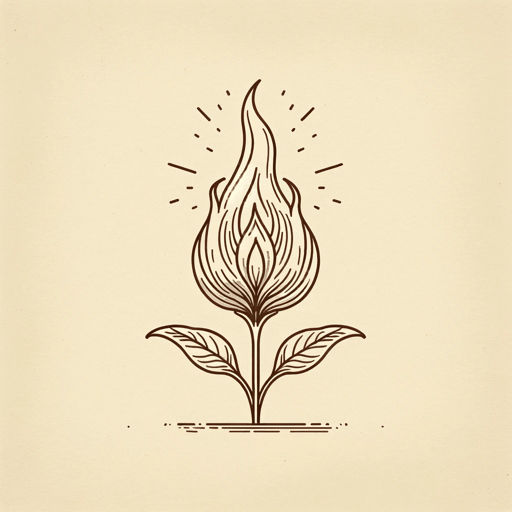60 pages • 2 hours read
Chitra Banerjee DivakaruniSister of My Heart
Fiction | Novel | Adult | Published in 1999A modern alternative to SparkNotes and CliffsNotes, SuperSummary offers high-quality Study Guides with detailed chapter summaries and analysis of major themes, characters, and more.
Important Quotes
“There is a third word he writes, the harsh angles of which sting like fire, making me wail, making Pishi sit up, rubbing her eyes. But the Bidharta Purush is gone already, and all she sees is a swirl—cloud of sifted dust—outside the window, a fading glimmer like fireflies.
Years later I will wonder: that final word he wrote, was it sorrow?”
(Book 1, Chapter 1, Pages 21-22)
The novel opens with the story of the Bidhata Purush, who visits newborn babies on their first night of life and writes their destinies on their foreheads. In the early part of the novel, Sudha tends to be very fatalistic and submissive to the deity’s prescriptions. In response to the threat to her daughter, she will grow increasingly rebellious against this idea of destiny, which comes to be tied up with the constraints of patriarchy. This opening lays the foundation for the theme of The Power of Storytelling, through which the author explores the importance of women claiming autonomy in deciding their fates.
“There are other reasons why I can never hate Sudha. Once I made a list of them.
Because she is the most beautiful person I know, just like the princesses in the fairy tales Pishi tells us, with her skin that’s the warm brown of almond milk. Her hair soft like monsoon clouds all the way down her back, and her eyes that are the softest of all.
Because she can put her hand on my arm when I’m ready to kick the world for its stupidity, and it’s like a drink of clean, cold water on a hot day.
Because she believes in magic, demons and gods, and falling stars to wish on, the way I never could.
Because she’s the best storyteller, better even than Pishi. She can take the told tales and make them new by putting us in them. Us, Anju and Sudha, right in there among the demon queens and fairy princes and talking beasts.
Because I called her into the world and therefore must do all I can to make sure she is happy.”
(Book 1, Chapter 2, Page 30)
This passage illustrates the close bond between Anju and Sudha and their sense of interdependence. Simultaneously, it establishes the two girls as foils to one another, introducing in tandem the theme of The Diversity of the Female Experience. The novel is interested, in part, in the myriad ways in which it is possible to be a woman. Sudha emerges as an imaginative storyteller and a romantic. The more pragmatic, rebellious, and skeptical Anju adores Sudha precisely because of the contrast between them.
Related Titles
By Chitra Banerjee Divakaruni
Featured Collections
Asian American & Pacific Islander...
View Collection
Books that Feature the Theme of...
View Collection
Brothers & Sisters
View Collection
Class
View Collection
Class
View Collection
Colonialism & Postcolonialism
View Collection
Family
View Collection
Friendship
View Collection
Grief
View Collection
Indian Literature
View Collection
Mothers
View Collection
Valentine's Day Reads: The Theme of Love
View Collection




